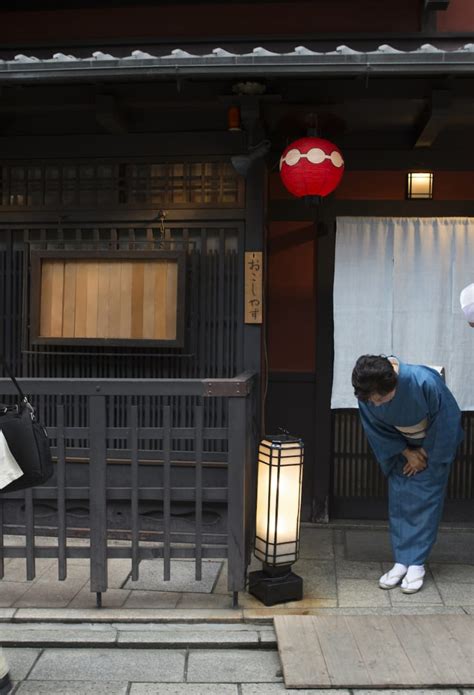
A recent traveler’s first trip to Japan was marred by culture shock stemming from a lack of awareness of Japanese etiquette, highlighting the importance of pre-trip preparation to ensure a respectful and enjoyable experience.
A first-time visitor to Japan recently shared her experience of navigating the country’s intricate cultural norms, admitting to several missteps that led to feelings of regret and a sense of cultural clumsiness. In an essay published by Yahoo! Lifestyle, the traveler, who remained anonymous, detailed instances where her unintentional breaches of etiquette caused her significant discomfort, leading her to advise future tourists to thoroughly research Japanese customs before traveling. Her account serves as a cautionary tale and a valuable lesson for those planning a trip to Japan, underscoring the necessity of cultural sensitivity and the potential pitfalls of cultural ignorance.
The traveler recounted her initial excitement about visiting Japan, a country she had long dreamed of exploring. However, her enthusiasm was quickly tempered by a series of cultural faux pas that left her feeling embarrassed and out of sync with her surroundings. “I was so excited to finally be in Japan, but I quickly realized I was woefully unprepared for the cultural differences,” she wrote. “I felt like I was constantly doing something wrong.”
One of her earliest missteps occurred on public transportation. Accustomed to talking on her phone freely in her home country, she was taken aback by the disapproving stares she received when she answered a call on a train. “In my country, it’s normal to take calls on the train, but in Japan, it’s considered extremely rude,” she explained. “I immediately hung up, but the damage was done. I felt like everyone was glaring at me.” This incident highlighted the importance of respecting the quiet atmosphere that is maintained on Japanese trains and buses, where phone conversations are generally discouraged.
Another significant source of discomfort arose from her unfamiliarity with Japanese dining etiquette. She described an incident at a traditional ramen restaurant where she unknowingly violated several customs. “I didn’t know that you’re supposed to slurp your noodles to show that you’re enjoying the meal,” she wrote. “I was trying to eat quietly and politely, but I later learned that I was probably seen as being impolite.” She also recounted her confusion over the use of chopsticks and the proper way to handle shared dishes. “I accidentally stuck my chopsticks upright in my bowl of rice, which I later learned is a big no-no because it resembles a funeral ritual,” she explained. “I was mortified.”
The traveler’s experiences extended beyond transportation and dining. She also encountered challenges navigating the intricate system of gift-giving, bowing, and other social interactions. She described a situation where she unknowingly offended a shopkeeper by not using both hands when receiving a purchase. “I didn’t realize that you’re supposed to use both hands to show respect,” she wrote. “The shopkeeper gave me a strange look, and I could tell I had done something wrong.” She also admitted to struggling with the nuances of bowing, a fundamental aspect of Japanese etiquette. “I never knew when to bow, how deep to bow, or for how long,” she confessed. “I felt like I was constantly making mistakes.”
The traveler’s narrative serves as a stark reminder that cultural differences can be significant and that a lack of awareness can lead to uncomfortable and even offensive situations. Her regret stemmed not from a lack of effort to be respectful, but rather from a lack of knowledge about the specific customs and expectations of Japanese society. “I really wanted to be respectful and to experience Japanese culture in an authentic way, but I felt like I was constantly stumbling,” she wrote. “It was frustrating and embarrassing.”
The impact of these experiences was profound, leaving the traveler with a lingering sense of cultural inadequacy. “I left Japan feeling like I had failed to truly connect with the culture,” she admitted. “I was so focused on trying not to make mistakes that I couldn’t relax and enjoy myself.” Her reflections underscore the importance of thorough preparation and cultural sensitivity when traveling to a country with customs that differ significantly from one’s own.
Her account highlights several key areas where travelers to Japan often encounter cultural differences. These include:
- Public Transportation: Maintaining quiet on trains and buses is crucial. Phone conversations are generally discouraged, and it is considered polite to refrain from loud talking or disruptive behavior.
- Dining Etiquette: Slurping noodles is acceptable and even encouraged in some contexts, as it indicates enjoyment of the meal. However, sticking chopsticks upright in a bowl of rice is considered a major faux pas. It is also important to be mindful of how to handle shared dishes and to avoid passing food directly from one set of chopsticks to another, as this is associated with funeral rituals.
- Gift-Giving: Using both hands when giving or receiving a gift or purchase is a sign of respect. The presentation of the gift is also important, and it is customary to wrap gifts neatly and to present them with a slight bow.
- Bowing: Bowing is a fundamental aspect of Japanese etiquette, and it is used to express greetings, gratitude, apologies, and respect. The depth and duration of the bow can vary depending on the situation and the relationship between the individuals involved.
- Shoes: Removing shoes before entering homes, temples, and some traditional restaurants is customary. Slippers are often provided for indoor use.
- Personal Space: Japanese culture places a high value on personal space, and it is important to avoid standing too close to others or making excessive physical contact.
- Tipping: Tipping is not customary in Japan and may even be considered rude. Service charges are often included in bills, and it is generally not necessary to offer additional compensation.
- Cleanliness: Maintaining cleanliness in public spaces is highly valued. It is important to dispose of trash properly and to avoid littering.
- Directness: While politeness is paramount, directness can sometimes be seen as abrasive. It’s often better to be indirect and avoid confrontation.
To avoid similar pitfalls, the traveler offered several recommendations for those planning a trip to Japan. “Do your research,” she advised. “Read books, watch videos, and talk to people who have traveled to Japan before. The more you know about Japanese culture, the better prepared you’ll be.” She also emphasized the importance of being mindful and observant. “Pay attention to how people are behaving around you,” she suggested. “Watch what they do and try to follow their lead.”
Furthermore, she stressed the importance of being humble and apologetic when mistakes are made. “If you accidentally offend someone, apologize sincerely,” she said. “Most Japanese people are very understanding and forgiving, especially if they know that you’re a foreigner who is unfamiliar with their customs.” She also recommended carrying a phrasebook or using a translation app to help navigate communication challenges. “Even a few basic Japanese phrases can go a long way in showing respect and building rapport,” she noted.
Beyond the practical tips, the traveler emphasized the importance of approaching Japanese culture with an open mind and a willingness to learn. “Don’t be afraid to ask questions,” she encouraged. “Most Japanese people are happy to share their culture with visitors.” She also stressed the importance of being patient and understanding. “Cultural adjustment takes time,” she acknowledged. “Don’t get discouraged if you make mistakes. Just learn from them and keep trying.”
Her experience underscores the broader importance of cultural awareness in an increasingly interconnected world. As travel becomes more accessible and people from different cultures interact more frequently, the need to understand and respect cultural differences becomes ever more critical. Cultural sensitivity is not only essential for ensuring a smooth and enjoyable travel experience but also for fostering mutual understanding and respect between people from different backgrounds.
The traveler’s candid account has resonated with many readers, sparking discussions about the challenges of navigating unfamiliar cultures and the importance of cultural preparation. Her story serves as a valuable reminder that travel is not just about seeing new places but also about understanding and appreciating different ways of life. By sharing her regrets and offering practical advice, she has provided a valuable service to future travelers to Japan, helping them to avoid similar pitfalls and to have a more meaningful and enriching experience.
Several resources are available to help travelers prepare for a trip to Japan and to learn about Japanese culture and etiquette. These include:
- Books: Numerous books on Japanese culture and etiquette are available, covering topics such as dining etiquette, gift-giving customs, bowing protocols, and social norms.
- Websites: Many websites offer information on Japanese culture and etiquette, including travel guides, cultural blogs, and online forums.
- Language Courses: Learning a few basic Japanese phrases can be helpful for navigating communication challenges and showing respect for the local culture.
- Cultural Orientation Programs: Some organizations offer cultural orientation programs for travelers to Japan, providing in-depth information on Japanese culture and etiquette.
- Travel Agencies: Travel agencies specializing in travel to Japan can provide valuable advice and guidance on cultural matters.
By taking advantage of these resources and approaching their trip with an open mind and a willingness to learn, travelers can greatly enhance their experience in Japan and avoid the kind of cultural missteps that plagued the first-time visitor. The key is to be proactive, to be respectful, and to be willing to adapt to the unique customs and expectations of Japanese society.
The traveler’s reflections also touch upon the broader issue of cultural exchange and the responsibility that travelers have to be respectful ambassadors of their own cultures. When traveling to a foreign country, individuals are not only representing themselves but also their home country and its values. By demonstrating cultural sensitivity and a willingness to learn, travelers can help to foster positive relationships between cultures and to promote mutual understanding and respect.
In conclusion, the traveler’s experience serves as a powerful reminder of the importance of cultural preparation when traveling to Japan. By taking the time to learn about Japanese customs and etiquette, travelers can avoid embarrassing missteps, enhance their overall experience, and foster positive relationships with the local people. Her story is a valuable lesson for anyone planning a trip to Japan, underscoring the need to approach new cultures with humility, respect, and a genuine desire to learn. The key takeaway is that a little preparation can go a long way in ensuring a smooth, enjoyable, and culturally enriching travel experience. She recommends learning basic phrases, understanding bowing customs, researching dining etiquette, and respecting the quiet norms on public transportation as essential steps for any visitor. By embracing these practices, travelers can move beyond simply seeing Japan and begin to truly experience its rich and nuanced culture.
Frequently Asked Questions (FAQ)
1. What was the main issue the traveler faced during her trip to Japan?
The traveler’s main issue was culture shock and a feeling of constant embarrassment due to her lack of knowledge of Japanese etiquette. She unintentionally violated various customs related to dining, transportation, gift-giving, and social interactions, leading to a sense of disconnect from the culture. As she stated, “I was so excited to finally be in Japan, but I quickly realized I was woefully unprepared for the cultural differences. I felt like I was constantly doing something wrong.”
2. Can you provide examples of etiquette mistakes the traveler made?
The traveler made several etiquette mistakes. She spoke on her phone on a train, which is considered rude. She was unsure of dining etiquette, like slurping noodles (which is acceptable) and mistakenly stuck her chopsticks upright in her rice bowl (resembling a funeral ritual). She also did not use both hands when receiving a purchase from a shopkeeper, which is a sign of disrespect.
3. What advice does the traveler give to those planning a trip to Japan?
The traveler advises thorough research of Japanese culture and customs before traveling. This includes reading books, watching videos, and talking to people who have been to Japan. She also emphasizes being mindful and observant of local behavior, being humble and apologetic when mistakes are made, and learning basic Japanese phrases. To summarise, she suggests “Do your research,” she advised. “Read books, watch videos, and talk to people who have traveled to Japan before. The more you know about Japanese culture, the better prepared you’ll be.”
4. Is tipping customary in Japan, and what should travelers do instead?
Tipping is not customary in Japan and may even be considered rude. Service charges are often included in bills, so it is generally not necessary to offer additional compensation. Attempting to tip may cause confusion or even offense.
5. What are some essential areas of Japanese culture that travelers should research before visiting?
Travelers should research etiquette related to public transportation (maintaining quiet), dining (slurping noodles, chopstick usage), gift-giving (using both hands), bowing (levels of respect), shoe removal in certain places, personal space, and the general value placed on cleanliness and indirect communication. Understanding these aspects can significantly enhance the travel experience and avoid unintentional offenses. 6. Why is it important to remove shoes in certain places in Japan?
Removing shoes before entering homes, temples, and some traditional restaurants is a customary practice that signifies respect for the space and helps maintain cleanliness. Slippers are often provided for indoor use, allowing guests to feel comfortable while adhering to the cultural norm.
7. How does bowing work in Japanese culture, and what should travelers know about it?
Bowing is a fundamental aspect of Japanese etiquette used to express greetings, gratitude, apologies, and respect. The depth and duration of the bow can vary depending on the situation and the relationship between the individuals involved. A deeper bow indicates greater respect. Travelers should observe how locals bow in different contexts and try to emulate their behavior.
8. What are some common mistakes travelers make when it comes to dining etiquette in Japan?
Common mistakes include sticking chopsticks upright in a bowl of rice (resembling a funeral ritual), passing food directly from one set of chopsticks to another (also associated with funeral rituals), and being unsure about whether to slurp noodles (it’s generally acceptable and even a sign of enjoyment).
9. How can travelers show respect when giving or receiving gifts in Japan?
When giving or receiving a gift or purchase in Japan, it is considered polite to use both hands to show respect. The presentation of the gift is also important, and it is customary to wrap gifts neatly and present them with a slight bow.
10. Why is it important to maintain quiet on public transportation in Japan?
Maintaining quiet on trains and buses in Japan is crucial because Japanese culture places a high value on consideration for others and minimizing disruptions in public spaces. Phone conversations and loud talking are generally discouraged to ensure a peaceful environment for all passengers.
11. What should travelers do if they accidentally offend someone in Japan?
If a traveler accidentally offends someone in Japan, they should apologize sincerely. Most Japanese people are understanding and forgiving, especially if they know the person is a foreigner unfamiliar with their customs. A simple “sumimasen” (excuse me/I’m sorry) can go a long way.
12. How can travelers prepare for communication challenges in Japan, especially if they don’t speak Japanese?
Travelers can prepare for communication challenges by learning a few basic Japanese phrases, carrying a phrasebook, or using a translation app. Even knowing a few simple phrases can demonstrate respect and facilitate basic interactions.
13. What role does cleanliness play in Japanese culture, and how should travelers be mindful of it?
Cleanliness is highly valued in Japanese culture, and travelers should be mindful of maintaining cleanliness in public spaces. This includes disposing of trash properly, avoiding littering, and being respectful of hygiene standards.
14. How does the concept of personal space differ in Japan compared to Western cultures?
Japanese culture places a high value on personal space, and individuals tend to maintain a greater distance from one another compared to some Western cultures. Travelers should avoid standing too close to others or making excessive physical contact.
15. What resources are available to help travelers learn about Japanese culture and etiquette before their trip?
Numerous resources are available, including books on Japanese culture and etiquette, websites with travel guides and cultural blogs, language courses, cultural orientation programs, and travel agencies specializing in trips to Japan.
16. What is the significance of gift-giving in Japanese culture?
Gift-giving in Japan is a significant social custom that serves to express gratitude, strengthen relationships, and maintain social harmony. The act of giving a gift is often more important than the gift itself, with careful attention paid to presentation and timing.
17. How does indirect communication differ from direct communication, and why is it important in Japan?
Indirect communication involves conveying messages subtly, without explicitly stating one’s intentions or opinions. This approach is valued in Japan because it helps avoid conflict and maintain social harmony. Travelers should be mindful of reading between the lines and interpreting nonverbal cues.
18. What is the role of harmony in Japanese society, and how does it impact cultural norms?
Harmony is a central value in Japanese society, influencing many cultural norms and practices. Maintaining social harmony requires individuals to prioritize the needs of the group over their own, avoid causing conflict, and show respect for others.
19. What is “omotenashi,” and how does it relate to Japanese hospitality?
“Omotenashi” is a concept that embodies the spirit of selfless hospitality in Japan. It involves anticipating and fulfilling the needs of guests without expecting anything in return, creating a welcoming and comfortable experience for visitors.
20. How can travelers be respectful of religious sites, such as temples and shrines, in Japan?
Travelers can show respect for religious sites by dressing modestly, removing hats and sunglasses, maintaining silence, avoiding photography in restricted areas, and following any guidelines or instructions provided by the staff. They should also be mindful of any rituals or ceremonies taking place and avoid disrupting them.
21. How can travelers contribute to sustainable tourism practices while visiting Japan?
Travelers can contribute to sustainable tourism by supporting local businesses, respecting the environment, conserving resources, reducing waste, and being mindful of their impact on local communities. They can also choose accommodations and tour operators that prioritize sustainability.
22. What is the significance of the tea ceremony in Japanese culture?
The tea ceremony, or “chanoyu,” is a traditional ritual that embodies the principles of harmony, respect, purity, and tranquility. It is a highly formalized practice that involves preparing and serving tea in a serene and contemplative setting.
23. How can travelers engage with local communities and support their economies in Japan?
Travelers can engage with local communities by staying in locally owned accommodations, eating at local restaurants, purchasing souvenirs from local artisans, and participating in local events and festivals. These activities help support local economies and promote cultural exchange.
24. What are some examples of traditional Japanese arts and crafts that travelers might encounter?
Examples of traditional Japanese arts and crafts include origami (paper folding), calligraphy, pottery, lacquerware, textiles, woodblock printing (ukiyo-e), and traditional music and dance.
25. How can travelers learn more about the history and culture of Japan during their trip?
Travelers can learn more about the history and culture of Japan by visiting museums, historical sites, temples, and shrines, attending cultural performances, taking guided tours, and reading books and articles about Japanese history and culture.









